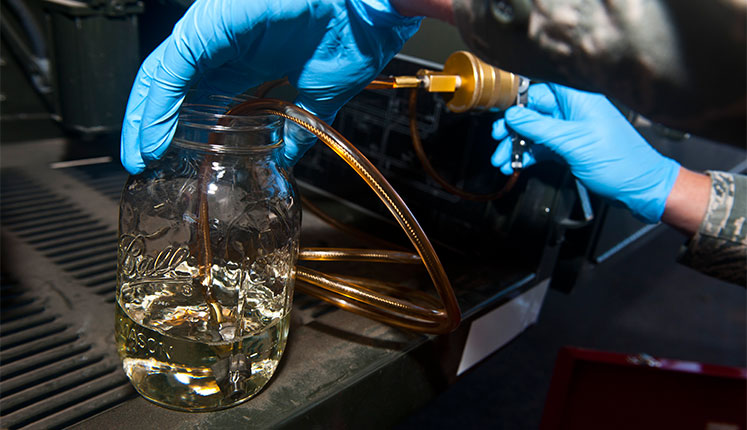Introduction
In the dynamic landscape of the 21st century, scientific innovation has become the driving force behind transformative advancements that shape the way we live, work, and interact with the world. This blog delves into the remarkable scientific inventions that have defined this era, showcasing the ingenuity of human minds and the profound impact these discoveries have on various aspects of our lives.
Section 1: Breakthroughs in Medicine and Healthcare
1.1 CRISPR-Cas9 Gene Editing
Explore the revolutionary CRISPR-Cas9 gene-editing technology and its implications in precision medicine. Discuss its potential to treat genetic disorders, cure diseases, and pave the way for personalized healthcare.
1.2 Artificial Organs and 3D Bioprinting
Examine the development of artificial organs and the groundbreaking technology of 3D bioprinting. Discuss how these innovations are transforming organ transplants, offering hope to those in need of life-saving procedures.
Section 2: Advancements in Information Technology
2.1 Quantum Computing
Delve into the realm of quantum computing and its potential to revolutionize data processing. Explore the principles behind quantum bits (qubits) and how quantum computers may reshape fields from cryptography to drug discovery.
2.2 Artificial Intelligence and Machine Learning
Explore the widespread impact of artificial intelligence (AI) and machine learning on various industries. Discuss applications ranging from autonomous vehicles and medical diagnostics to natural language processing and personalized recommendations.
Section 3: Sustainable Energy Solutions
3.1 Renewable Energy Technologies
Examine the advancements in renewable energy technologies such as solar, wind, and hydroelectric power. Discuss their role in mitigating climate change and transitioning towards a more sustainable and eco-friendly energy landscape.
3.2 Energy Storage Innovations
Explore breakthroughs in energy storage, including advancements in battery technologies. Discuss their significance in enabling the widespread adoption of renewable energy sources and addressing the challenges of intermittency.
Section 4: Space Exploration and Aerospace Technologies
4.1 SpaceX and Commercial Space Travel
Discuss the emergence of private space exploration companies like SpaceX and their role in reshaping the landscape of space travel. Explore the potential for commercial space tourism and the colonization of other celestial bodies.
4.2 Advancements in Satellite Technology
Examine the evolution of satellite technology and its impact on communication, navigation, and Earth observation. Discuss how small satellites and mega-constellations are changing the way we connect and monitor our planet.
Section 5: Biotechnological Innovations
5.1 Lab-Grown Meat and Sustainable Agriculture
Explore the development of lab-grown meat as a sustainable alternative to traditional livestock farming. Discuss its potential to address environmental concerns and food security challenges.
5.2 Biodegradable Plastics and Environmental Solutions
Examine biotechnological solutions to environmental challenges, including the development of biodegradable plastics. Discuss their role in reducing plastic pollution and promoting a more sustainable approach to material usage.
Section 6: Nanotechnology and Materials Science
6.1 Nanomedicine and Targeted Drug Delivery
Explore the applications of nanotechnology in medicine, particularly in targeted drug delivery and diagnostics. Discuss how nanoscale materials are revolutionizing the way we approach healthcare.
6.2 Supermaterials and Advanced Manufacturing
Examine supermaterials and their transformative impact on various industries, from aerospace to electronics. Discuss how advancements in materials science are driving innovation in manufacturing processes.
Section 7: Robotics and Automation
7.1 Collaborative Robots (Cobots)
Discuss the rise of collaborative robots, or cobots, and their role in enhancing human-machine collaboration. Explore their applications in manufacturing, healthcare, and other sectors.
7.2 Autonomous Vehicles and Drone Technology
Examine the advancements in autonomous vehicles and drone technology. Discuss their potential to revolutionize transportation, logistics, and even emergency response systems.
Conclusion
In conclusion, the scientific inventions of the 21st century are reshaping the fabric of our existence, pushing the boundaries of what is possible in medicine, technology, sustainability, space exploration, biotechnology, nanotechnology, and beyond. The collective ingenuity of scientists, researchers, and innovators worldwide continues to drive progress, offering solutions to some of humanity’s most pressing challenges. As we navigate this era of unprecedented scientific discovery, the blog serves as a testament to the transformative power of human intellect and the boundless possibilities that lie ahead on the horizon of scientific exploration.
